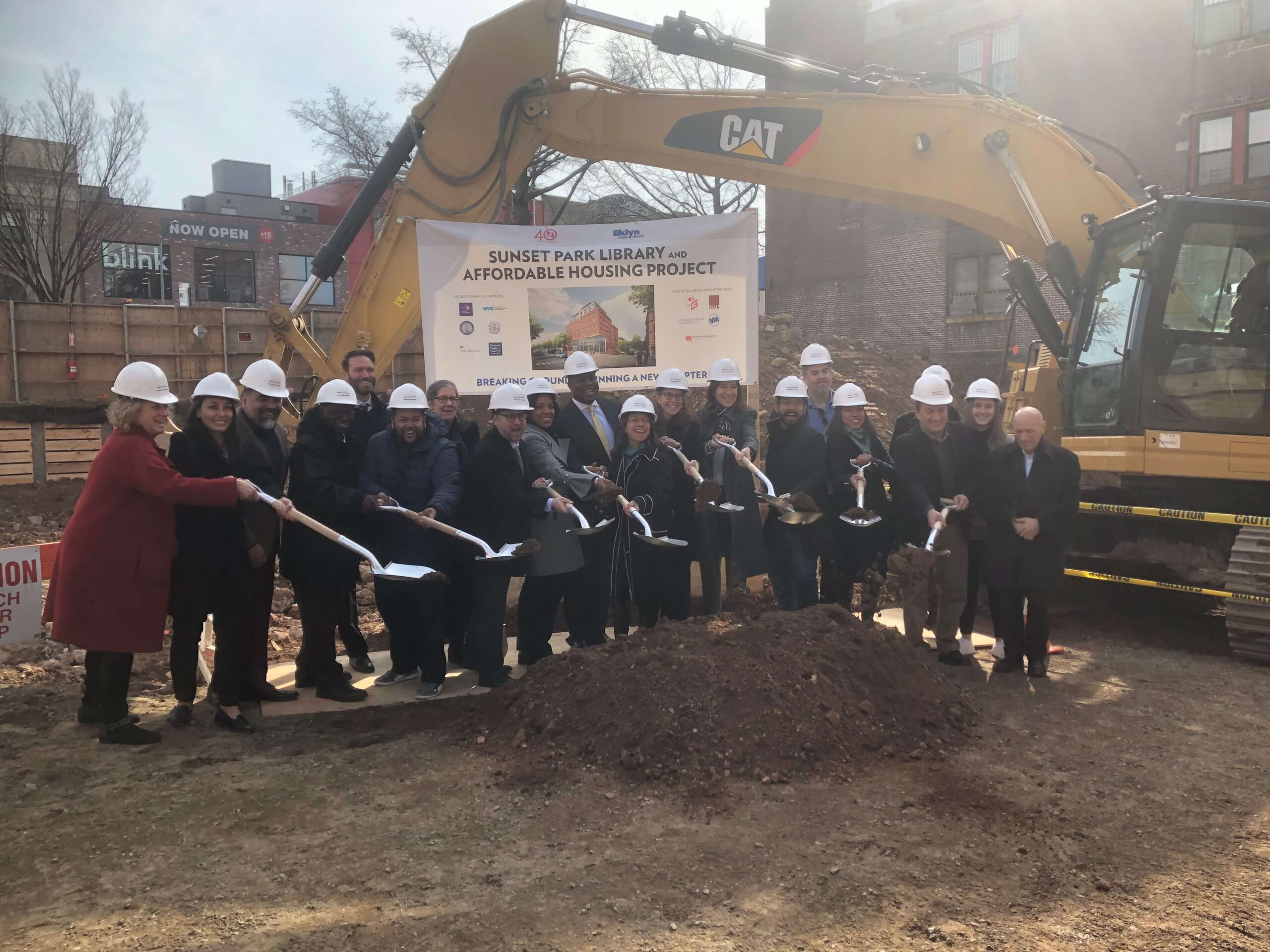Groundbreaking held in Sunset Park for new library, affordable housing

ebrooklyn media/Photo by Jaime DeJesus
Finally hitting the books.
After years of protests, negotiations, stalls and starts, the Brooklyn Public Library (BPL) and the Fifth Avenue Committee (FAC) broke ground on Weds., Feb.. 6 on the long-awaited new state-of-the-art Sunset Park library, housed in an eight-story building that will also incorporate 49 units of affordable housing.
The new building — which is slated to open in December, 2020 — will rise on the site of the old library, which was previously demolished, 5108 Fourth Ave.